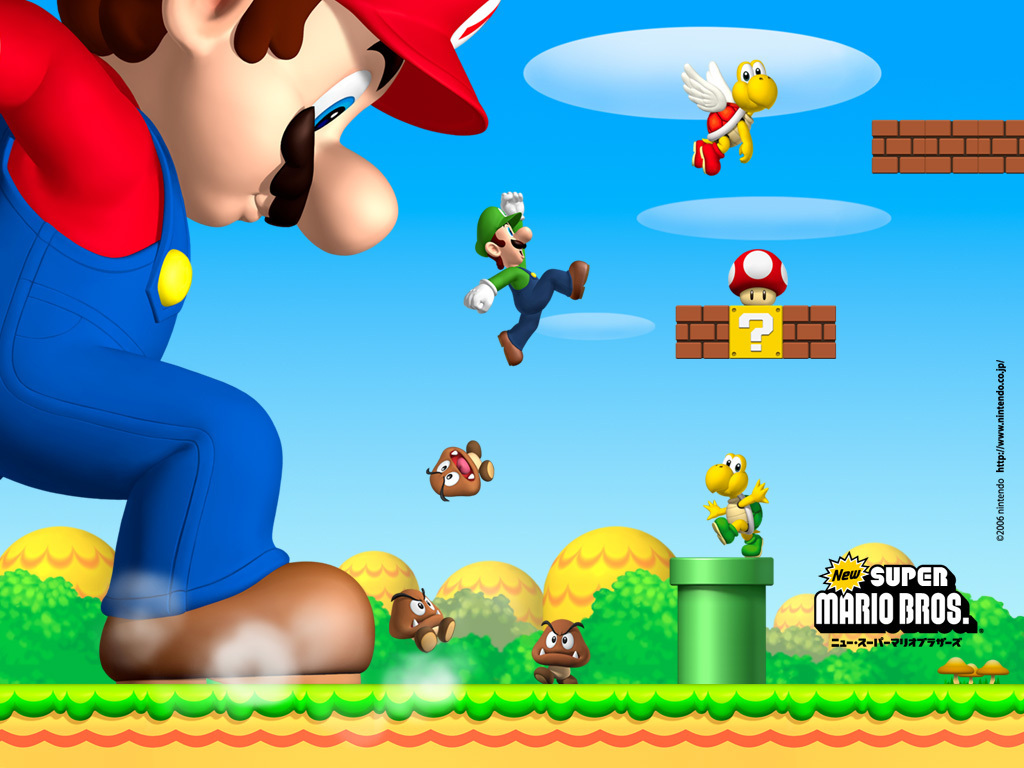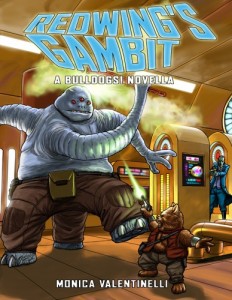
Today’s how to post is brought to you by the makers of… Well, let’s see. What did I make recently? I had a novella published earlier this week called Redwing’s Gambit. Hrmmm…
Anyhoo, I recently had a question about how I updated my site during my 100 Days of No Social Media. Here’s the steps I took before I went underground.
1. Announce You’re Taking a Break – I tried to go offline many times and I received angry and distressed e-mails from people wondering where I was and if anything was wrong. Not to mention, there are people who don’t use e-mail to communicate anymore and rely solely on Facebook messaging or Twitter. If you’re online a lot, for whatever reason (in my case day-and-night job), then I recommend figuring out some way to make your online friends, customers, readers, etc. aware. Once you have something posted, then you’ve done your due diligence. Some folks were still upset, but I guess there’s nothing to be done about that.
2. Update Your Own Site – One of the things that I did, was focus on blogging instead of micro-blogging (e.g. shooting quick updates). This technique slowed me down considerably and helped me focus on what I was doing (big picture) rather than what I was saying (second-to-second). To do that, I wrote a bunch of posts beforehand and scheduled them to run on certain days. Other posts, like the ones where I talked about how the 100 Days was going, I penned on that day.
3. Distribute the Content – I double-checked my RSS feeds to make sure they were working. I use Feedburner for that. Then, I made sure my Twitter account was feeding into Facebook. At this point, you may be asking yourself if I cheated. I don’t think so. There are a number of people who don’t visit my site directly and read the articles only when they post through these sites. You can see this for yourself if you go to your analytics and check out the social media referrers. A tool has many uses. Some people use Twitter but never post. (Seriously.) Others interact. I felt that my data justified auto-posting blog titles on these networks even though I wasn’t monitoring them. One of the tools that’ll allow you to splice and re-purpose RSS feeds is called TwitterFeed. I had a lot of good luck with this and didn’t have any issues during my time off.
4. Don’t Check Your Analytics – Checking any sort of web traffic measurement during this time will send you into a tailspin because you’ll wonder what you’re not doing on social media. Stop. Seriously. Just stop. The whole point of this exercise is to help you re-prioritize and focus on what matters. If you’re constantly checking who’s coming to your site, then you’ll never break free of the cycle.
5. Know What Projects You Want to Complete – Complaining about you don’t have time to do “X”? Do it! Sit down, map out your time, and take the opportunity to do those things you’ve always wanted to do but didn’t during your time offline. This will be its own reward because you’re making it a point to do something for yourself.
What to Expect? Know Your Data, First
Now, I will say that every site is different. Your site could have a negative impact if you’re solely relying on your interactions to get traffic. It’s possible that you’re working your arse off to get those extra visits every month and you don’t realize how many hours you’ve spent to get those viewers.
How much is one visit worth? Well, before you can understand that, there needs to be another piece to this puzzle. In online retail, we call this conversion and it’s what store owners and valued marketers hang their hat on. If you’re not worried about conversion, then you won’t be able to figure out what value you’re getting out of what you’re doing, unless you’re solely focused on “branding.” (e.g. internet fame) But even that’s a Catch 22 for authors because it’s the stories people read. You could be the crappiest biggest a-hole on the face of the planet that no one liked and still write a good story that people will gladly sell their first child to get.
I guess what I’m trying to say here is… Please, for the love of data and all things sanity-related — don’t buy into the hype unless you can see trusted metrics to back up people’s claims! Facebook “likes” are not a good metric! You don’t even have to “like” a page to get their updates anymore, either, and you’re still at the mercy of whatever that platform does.
Analytics are crucial to any marketer just like a shareholder’s report is key for any investor. Don’t ignore good data and you’ll wind up making better decisions for yourself and your work.
Quality over Quantity
You can drive all the visits to your site or your fan pages that you want, but in the end you have to know what you want to get out of it. You got 10,000 visits on that one article! Joy! Bliss! Great! Then what? Seriously. What’s the effing point? So what if they read your review of some author’s book. Are they picking up yours? No? Gee, I wonder why.
To get qualified traffic, you also have to have relevancy. Ever read an article and get pissed off because the content didn’t match the headline? That happens for two reasons. First, the writer gets paid per visit so they want controversy. Or second, because the site gets paid by advertising revenue for eyeballs on the page. For authors, though, this model doesn’t work. You could have incidental sales or accidental traffic from something else you’re doing, but unless you’re focused on your work, talking about doughnuts every day won’t help you promote awareness of your post-apocalyptic tale.
The secret to the web is not the volume of readers, but the quality therein. Although there’s a lot of emphasis being placed on high traffic, folks have to dig deeper into analytics to understand what’s really going on. I know it feels a lot of the time like there’s this popularity contest online (and there is) but that’s not as important as why you’re online in the first place.
You have to decide what you want out of your online presence; no one else can do that for you. Not your friend, not some marketroid trying to sell their self-help book, not your publisher or your agent or your editor. If you’ve analyzed the data and you firmly believe that going offline is too big of a risk? Then don’t do it. However, I will say that you’d be surprised how crucial it is to place your primary energies into your work. If you are not firmly grounded with what you’re trying to do, then no amount of promotion will fix a lack of product, regardless of what that “product” may be. You can sell yourself, but for creative professionals, the work is what you’re guaranteed to make money on. Even if you get gigs based on who you are, eventually you’ll have to deliver.
1,000 True Fans
For a real-time example of how popularity doesn’t mean as much as you think it does, look at Kickstarter and how authors are raising money to write novels using that platform. Don’t look at the dollar signs; take a peek at the number of contributors. In many cases, thousands of dollars are raised by a couple hundred people. That, right there, is exactly how the web works and I’ve seen that same thing happen through data on dozens of sites. It’s part of the 1,000 true fans ideology. It is said, and rightly so, that authors who have 1,000 true fans will be able to make a decent living provided they know how to leverage that audience. Or, in other words, if a true fan devotes $100 per year to your work, and you have 1,000 of them, then you’ll make $100,000 a year. The same is true for businesses who encourage loyal customers, too.
If you look at the average contribution for The Order of the Stick reprint drive, which attracted over 14,000 contributors, you’ll also see this in action. Even though the Kickstarter raised $1.25 million dollars, the average contribution was $83. Yes, there were levels and some contributed more than others, but the point I’m trying to make is that what you want are people who are devoted to your work. Order of the Stick built in levels well above $100 for fans who were willing to pay more, but in the end it all averaged out. The Far West Kickstarter had 717 contributors and raised over $43K for an average of? Sixty-eight dollars. In some cases, like the Neil Gaiman and Amanda Palmer Kickstarter, you’ll see the contributors jump. 3,873 for over $130K. Here again, it comes down to data. Check out the levels. When it starts at a dollar, you can pretty much guarantee that the bulk of your contributors will lurk about there. The average shows this, too. $34 per person, but having more contributors means that more people will see the end result.
Here’s another example. Many authors who are leaving publishing houses to self-publish will often discuss how they’re selling less copies of books, but they’re making more money. This is why, because their true fans followed them from traditional publishing and the math worked out in their favor. If self-publishing didn’t allow authors to make more per copy, and they didn’t already have a number of fans that would buy from them there, then not as many would be using those tools.
What Works, May Only Work For You
Now, am I saying publishers are the debbil and self-publishing is the answer? ABSOLUTELY NOT. To each their own! At the end of the day, publishers want the same thing you do, to put out a quality product and create fans willing to buy your next book. There are publishers who have tools at their disposal to support authors and help you get readers. It’s not a best or worst-case scenario; it’s whatever works for you at this precise moment in your career. For authors, it doesn’t come down to how many people think you’re cool. It always boils down to how many readers are willing to pay for your books.
Regardless of what you decide to do, I wish you the best of luck with your words and your own future. It’s your destiny as a creator. Own it. Shape it. Do it. Be happy.
Mood: Kind of weird, actually. Aristotle with a side of Shakespeare.
Caffeinated Beverages Consumed: Two with ginseng.
Work-Out Minutes Logged Yesterday: Short walk
Yesterday’s Projects: Game, Editing, Fiction
In My Ears: Rest in Peace from the Buffy the Vampire: Once More with Feeling soundtrack
Game Last Played: Battle Nations
Movie Last Viewed: Um… Crap… What was it again?
Book Last Read: [Redacted.]
Latest Artistic Project: Paint! Thar has been painting. Thar may be cross-stitching?
Latest Release: Redwing’s Gambit for Bulldogs! the RPG





